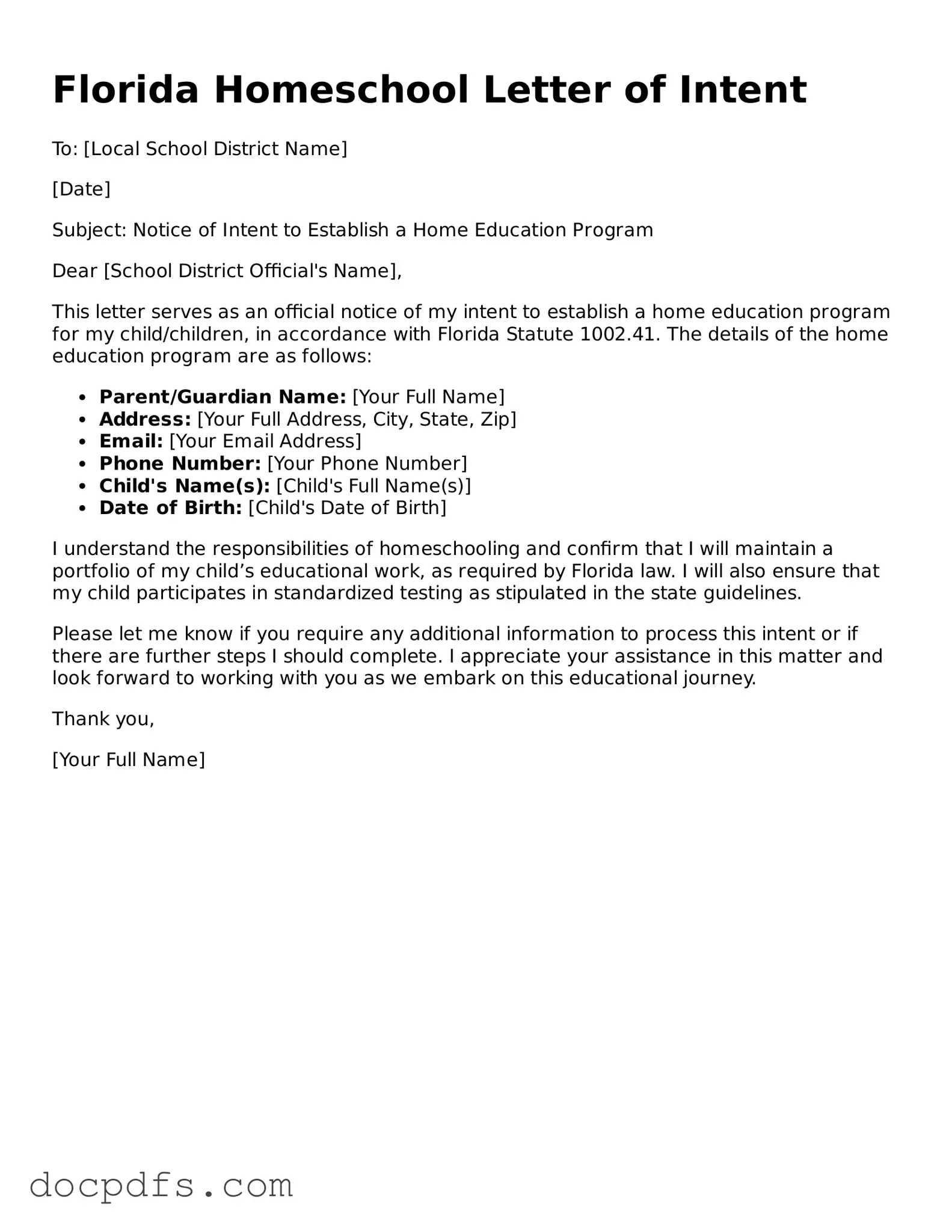Free Florida Homeschool Letter of Intent Form
The Florida Homeschool Letter of Intent form is a crucial document that parents must submit to officially notify the state of their decision to homeschool their children. This form serves as a formal declaration of intent, ensuring compliance with state regulations while allowing families the freedom to educate their children at home. Understanding the requirements and process for completing this form is essential for a smooth homeschooling experience.
Open Homeschool Letter of Intent Editor Now

Free Florida Homeschool Letter of Intent Form
Open Homeschool Letter of Intent Editor Now

Open Homeschool Letter of Intent Editor Now
or
⇓ Homeschool Letter of Intent
Finish this form the fast way
Complete Homeschool Letter of Intent online with a smooth editing experience.